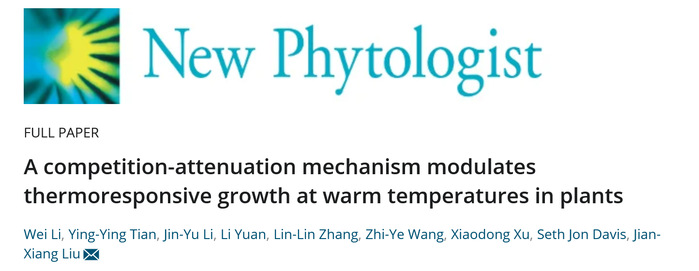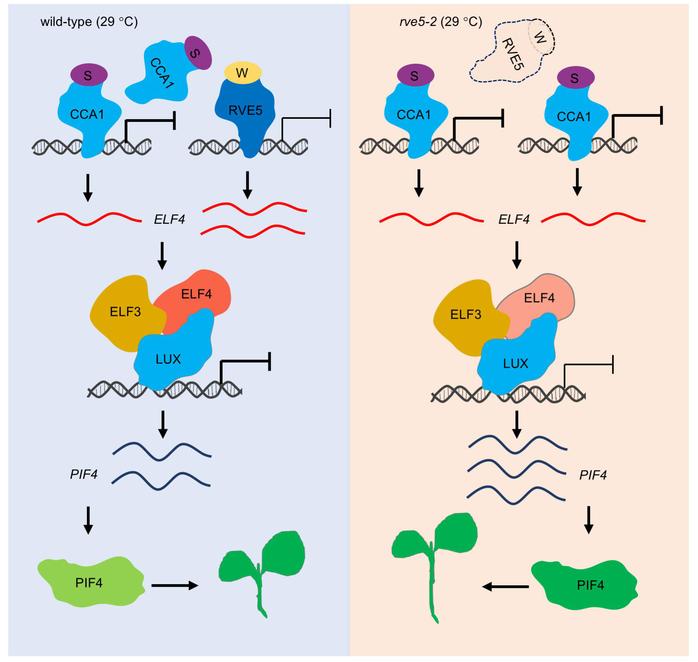
Title: A competition-attenuation mechanism modulates thermoresponsive growth at warm temperatures in plants
Wei Li, Ying-Ying Tian, Jin-Yu Li, Li Yuan, Lin-Lin Zhang, Zhi-Ye Wang, Xiaodong Xu, Seth Jon Davis, Jian-Xiang Liu
First published: 26 August 2022
https://doi.org/10.1111/nph.18442
Summary
• Global warming has profound impact on growth and development, and plants constantly adjust their internal circadian clock to cope with external environment. However, how clock-associated genes fine-tune thermoresponsive growth in plants is still less understood.
• We found that loss-of-function mutation of REVEILLE5 (RVE5) reduces the expression of circadian gene EARLY FLOWERING 4 (ELF4) in Arabidopsis, and confers accelerated hypocotyl growth under warm-temperature conditions.
• Both RVE5 and CIRCADIAN CLOCK ASSOCIATED 1 (CCA1) accumulate at warm temperatures and bind to the same EE cis-element presented on ELF4 promoter, but the transcriptional repression activity of RVE5 is weaker than that of CCA1. The binding of CCA1 to ELF4 promoter is enhanced in the rve5-2 mutant at warm temperatures, and overexpression of ELF4 in the rve5-2 mutant background suppresses the rve5-2 mutant phenotype at warm temperatures.
• Therefore, the transcriptional repressor RVE5 finetunes ELF4 expression via competing at a cis-element with the stronger transcriptional repressor CCA1 at warm temperatures. Such a competition-attenuation mechanism provides a balancing system for modulating the level of ELF4 and thermoresponsive hypocotyl growth under warm temperature conditions.
Link: https://nph.onlinelibrary.wiley.com/doi/10.1111/nph.18442






